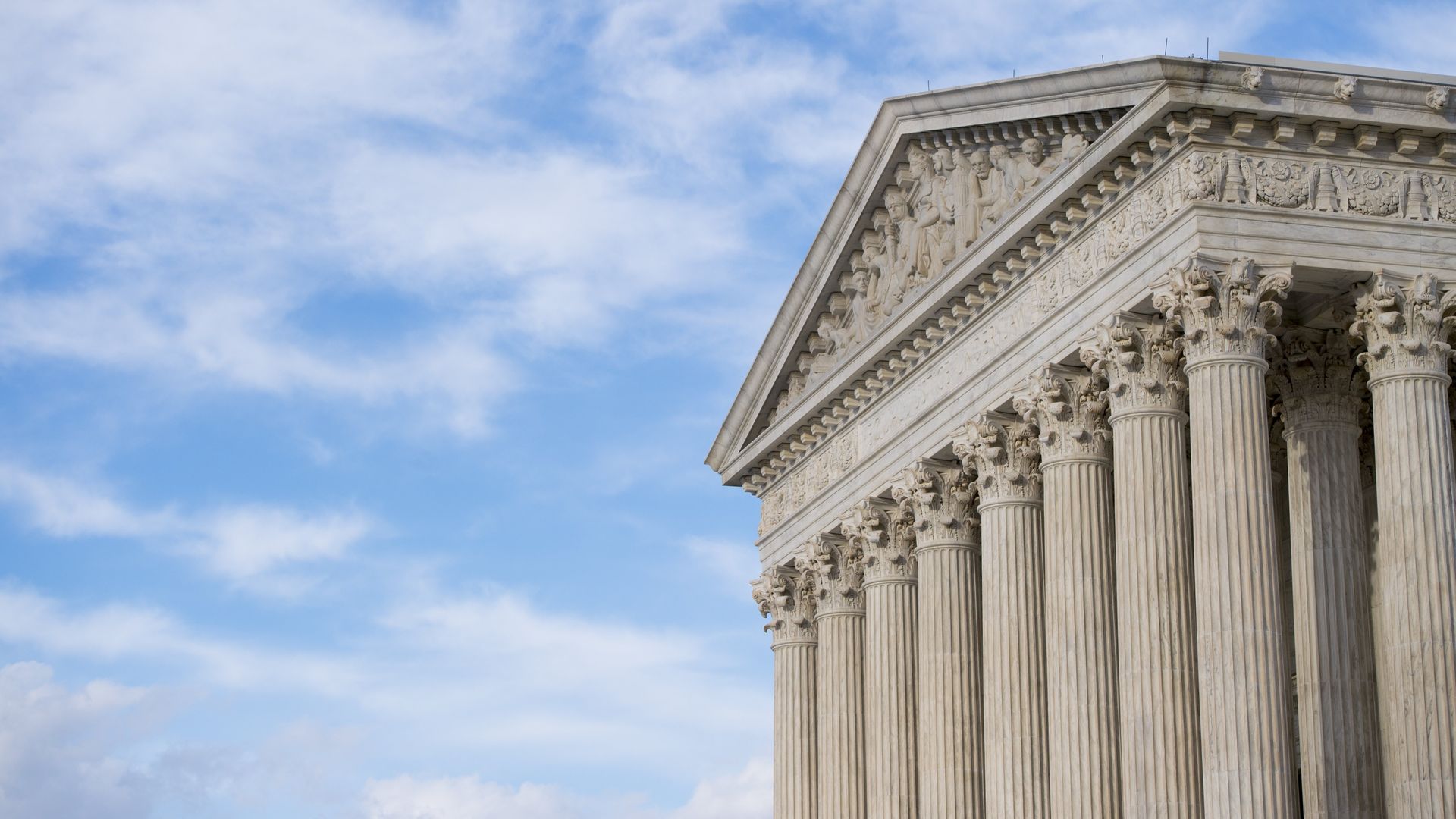Supreme Court agrees to hear challenges to Texas abortion law
Add Axios as your preferred source to
see more of our stories on Google.

Photo: Saul Loeb/AFP via Getty Images
The Supreme Court on Friday agreed to hear two cases challenging Texas' abortion law, which bans the procedure as soon as six weeks into pregnancy, but left the law in place in the meantime.
Why it matters: The court is moving extraordinarily fast on the Texas cases, compressing into just a few days a process that normally takes months. And that schedule means the court will take up Texas' ban a month before it hears another major abortion case — a challenge to Mississippi's own 2018 ban on abortions after 15 weeks.
The big picture: The high court will now officially hear three major abortion cases this term.
- The Department of Justice challenged the Texas law in U.S. v. Texas. And abortion providers filed suit in Whole Woman's Health v. Jackson.
- In U.S. v. Texas, state officials are asking the justices to consider overturning both Roe v. Wade and the 1992 case, Planned Parenthood v. Casey, which upheld the right to an abortion.
- In Dobbs v. Jackson Women’s Health Organization, Mississippi state officials are also asking the court to overturn Roe.
What they're saying: "For the second time, the Court is presented with an application to enjoin a statute enacted in open disregard of the constitutional rights of women seeking abortion care in Texas. For the second time, the Court declines to act immediately to protect these women from grave and irreparable harm," Justice Sonia Sotomayor wrote in her dissenting opinion, objecting to the majority's decision not to stay the law pending review. She agreed to hear the cases.
- "The promise of future adjudication offers cold comfort, however, for Texas women seeking abortion care, who are entitled to relief now. These women will suffer personal harm from delaying their medical care, and as their pregnancies progress, they may even be unable to obtain abortion care altogether," Sotomayor added.
- On the Texas ban, Sotomayor said: "I cannot capture the totality of this harm in these pages. But as these excerpts illustrate, the State ... has so thoroughly chilled the exercise of the right recognized in Roe as to nearly suspend it within its borders and strain access to it in other States. The State’s gambit has worked. The impact is catastrophic."
How it works: The Texas law is the most restrictive abortion ban that has so far been allowed to be enforced since Roe. It prohibits the medical procedure after an embryo’s cardiac activity is detected, which can be as early as six weeks and before many people know they are pregnant.
- It provides no exceptions in cases of rape or incest.
- Instead of being formally enforced by the state, the law encourages private citizens to sue anyone who assists pregnant people to get the procedure.
- Chief Justice John Roberts has called the Texas law's enforcement "not only unusual, but unprecedented."
- Sotomayor called the ban an "illegal law" and said the Texas legislature "designed this scheme to make it more complicated to enjoin the Act."
Context: This is the second time the Supreme Court has allowed the ban to remain in place during judicial review. Initially, the majority did not rule on whether the law was constitutional or not (in regards to its enforcement), giving way for lower courts to decide on the issue.
- Both cases were being held back in the 5th U.S. Circuit Court of Appeals, which had also denied the the DOJ's initial request for a preliminary injunction.
Catch up quick: Abortion providers last month urged the court to hear the Texas case before lower courts delivered their final judgment because of the "great harm the ban is causing."
The DOJ sued the state of Texas in September, with Attorney General Merrick Garland calling the law "clearly unconstitutional." Last week, the department asked the high court to temporarily block the law while it is under view, saying that Texas’ move to have individual citizens enforce the law creates “private bounty hunters.”
- The DOJ also said at the time the court could consider the application not only as a request to block the law, but also as a request to have the case heard.
What's next: The Supreme Court said it will hear oral arguments in both Texas cases on Nov. 1. The justices had previously set Dec. 1 as the date to hear arguments in the Mississippi case.
Read Friday's Supreme Court's order in U.S. v. Texas:
